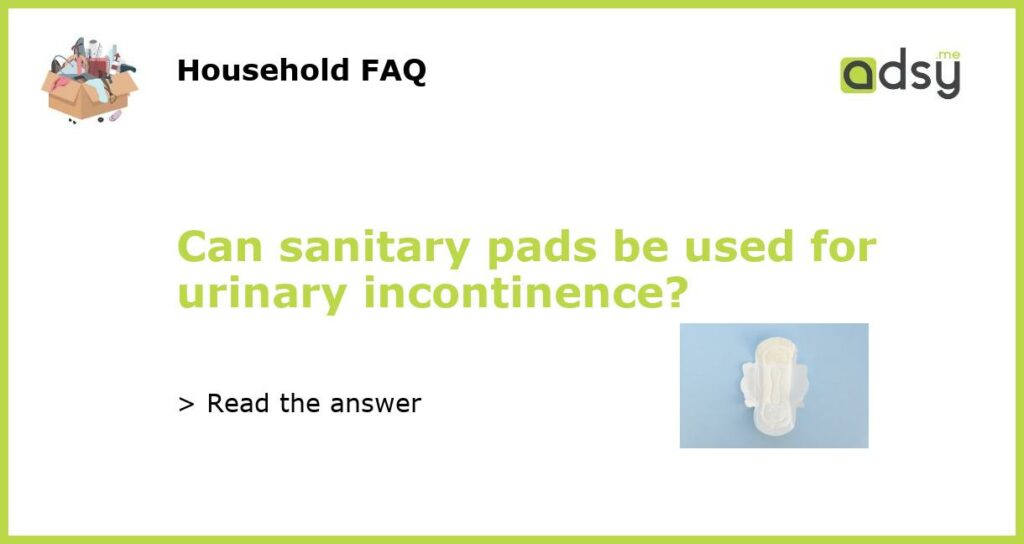Sanitary pads and urinary incontinence: What you need to know
If you suffer from urinary incontinence, you may have wondered whether using sanitary pads could be a potential solution. While sanitary pads are designed for menstrual flow, some individuals may consider using them for urinary leakage. However, it’s essential to understand that sanitary pads are not designed to manage urine leaks and may not be the most effective or suitable option for individuals experiencing urinary incontinence.
Understanding urinary incontinence
Urinary incontinence refers to the involuntary leakage of urine. It is a common condition that can affect individuals of all ages, genders, and underlying health conditions. Various factors can contribute to urinary incontinence, including weakened pelvic floor muscles, hormonal changes, certain medical conditions, and medications. There are different types of urinary incontinence, such as stress incontinence, urge incontinence, and overflow incontinence.
The limitations of sanitary pads for urinary incontinence
While sanitary pads are specifically designed for managing menstrual flow, some individuals might consider using them for urinary incontinence due to convenience and familiarity. However, sanitary pads have certain limitations when used for urinary leakage:
- Absorbency: Sanitary pads are designed to absorb menstrual blood, which has different properties compared to urine. Urine is a liquid waste that tends to flow faster and can potentially leak through the pad.
- Odor control: Sanitary pads are designed to minimize menstrual odor, but they may not be as effective in controlling urine odor. Urine contains different compounds that can result in a more noticeable and distinct odor.
- Shape and fit: Sanitary pads are contoured to fit the shape of the female genital area for menstrual flow management. This may not provide optimal coverage and leakage prevention for individuals with urinary incontinence.
Alternative options for urinary incontinence management
If you are experiencing urinary incontinence, it is important to explore appropriate management options that are specifically designed for this condition. Some alternative options you can consider include:
- Urinary pads or liners: These are specifically designed for managing urinary leakage and offer better absorption and leakage control compared to sanitary pads. They are available in various shapes, sizes, and absorbency levels, providing a more suitable solution for individuals with urinary incontinence.
- Adult diapers or pull-up underwear: These are specifically designed for individuals with moderate to heavy urinary incontinence. They offer higher levels of absorbency and coverage, ensuring optimal leakage control and comfort.
- Pelvic floor exercises: Strengthening the pelvic floor muscles through exercises such as Kegels can help improve urinary control and reduce the frequency of leaks. Consult with a healthcare professional for guidance on the appropriate exercises for your specific needs.
- Medications: In some cases, medications may be prescribed to help manage urinary incontinence by reducing bladder spasms or increasing bladder capacity. These medications should only be taken under the supervision of a healthcare professional.
- Surgical interventions: In severe cases of urinary incontinence that do not respond to conservative treatments, surgical interventions may be considered. These can include procedures to support the bladder or urethra or the placement of artificial urinary sphincters.
Consult with a healthcare professional
If you are experiencing urinary incontinence, it is important to consult with a healthcare professional to receive an accurate diagnosis and appropriate management recommendations. They can assess your specific condition, severity, and any underlying factors to determine the most suitable treatment options for you. By finding the right management approach, you can regain control over your bladder and improve your quality of life.






